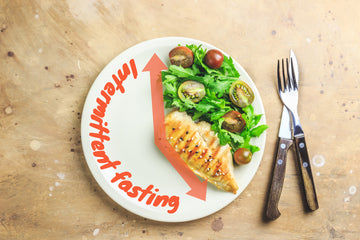

What Is Food Noise?
Food noise refers to the constant and persistent thoughts about food that go beyond physical hunger. Anyone can experience food noise, but intensity can vary from person to person depending on their environment, learned behaviors, and biological factors. Many do not realize they have food noise until it is significantly reduced, often through medication or lifestyle changes.
For those who have extra weight or are living with obesity, thinking about food can become inescapable, like an itch that has to be scratched. The good news is that you don’t have to live with this forever. In this article, we’re sharing what causes food noise and ways you may be able to reduce it.
How Food Noise Impacts Health
Food noise can present a significant challenge. When food noise occurs daily, it can be problematic, negatively impacting food choices and quality of life. According to a report, 61% of people who are categorized as overweight or suffering from obesity find it difficult to follow a nutrition or physical activity plan due to food noise, and 60% say food noise makes it more difficult to make healthy food choices.
What Causes Food Noise
There are several reasons why people may experience food noise. These include:
- genetics,
- not getting enough restorative sleep,
- high amounts of stress,
- health conditions such as metabolic syndrome and polycystic ovary syndrome (PCOS), and
- certain medications, like antidepressants, birth control, insulin, antipsychotics, and beta-blockers, which are used to treat high blood pressure.
Medications to Reduce Food Noise
Glucagon-like peptide-1 (GLP-1) is a naturally occurring hormone released in the gut after eating that plays a key role in regulating appetite by signaling satiety, which is the feeling of fullness. GLP-1 medications such as semaglutide work by interacting with GLP-1 receptors in the brain and promoting satiety signals, effectively reducing the perception of hunger and decreasing food cravings. Semaglutide is the active ingredient found in Ozempic and Wegovy.
However, once you stop taking the medication, food noise may return. Taking the medication while following other lifestyle management approaches will help you develop a healthier relationship with food.
How to Quiet Food Noise Without Medication
Here are several approaches to reducing food noise naturally.
Decrease Stress
When you feel anxious, irritable, or not rested, you may turn to food to temporarily feel better. Instead, you can engage in deep breathing exercises, be physically active, spend time in nature, or hang out with loved ones. Depending on your situation, counseling or therapy with a mental health professional may be beneficial.
Keep Certain Foods Out of Sight
To reduce temptation, keep the food(s) you want to limit out of sight, out of mind. This includes foods that lack nutritional value like chips and pretzels, high-fat foods like sausage and bacon, and high-sugar foods like candy, cake, and cookies. Placing them in the back of your pantry or refrigerator can help, but the best strategy is to avoid purchasing them altogether.
Stay Hydrated and Listen to Your Hunger/Fullness Cues
Getting too hungry or depriving yourself of food could lead to overeating once you finally give yourself permission to eat. To avoid this, don’t go for long periods of time without eating. Listen to your body. If you feel hungry, ask yourself if an apple would be satisfying. If the answer is yes, then it is likely true food hunger. If the answer is no, then it might be hunger of a more emotional state (positive emotion, negative emotion, boredom, stress, etc.) When you experience true hunger, you should fuel your body with nutritious choices in order to prevent that ravenous feeling.
Staying hydrated is just as important, as many individuals often think they are hungry when they are actually thirsty. Getting in your fluids, eating three to four meals a day, and consuming enough protein to help you feel full are all ways to help limit food noise. Talk with a registered dietitian or your bariatric healthcare team to find out how much protein you should consume each day.
Eat More Mindfully
Practice mindful eating by slowing down and minimizing distractions. Focus on the experience: engage all your senses, savor small bites, and chew thoroughly. Pause during the meal to think about how it tastes, and stop eating when you are comfortably full.
Reach Your Goals With ProCare Health
At ProCare Health, we care about your health and nutrition. Our experts make it easy to understand your post-bariatric surgery needs so you don’t feel overwhelmed. Simply request a free sample, join our Bari Connected live events and support group sessions, view our Body+Soul resources, including recipes, or reach out to a member of our team.
Give us a call at 877-822-5808 or contact us today with any questions!









